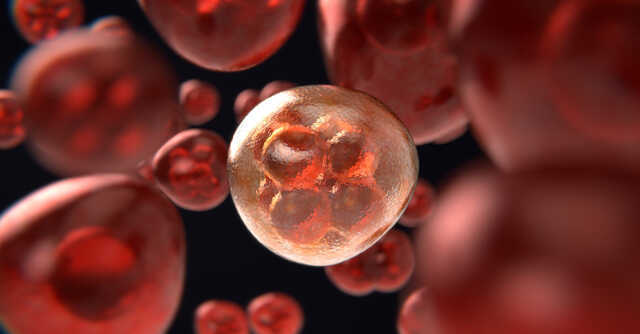
Scientists claims cancer causing virus can affect the central nervous system: Govt study


A research team from IIT Indore claimed that cancer-causing virus Epstein Barr Virus (EBV) can infect the neuronal cells leading to diseases of the central nervous system as well as brain cancer, the union ministry of science and technology said on Monday.
The group of scientists worked for the Department of Science and Technology (DST) under the Fund for Improvement of S&T Infrastructure (FIST) scheme to explore the possible impacts of a cancer-causing virus on brain cells.
The study has now been published in the latest issue of ACS Chemical Neuroscience journal which showed that there could be timely and gradual changes in the neuronal cells under viral influence.

The scientist utilized the Raman microspectroscopy technique, a simple, cost-effective tool to find sensitive chemical changes in biological samples.
“Scientists have found “EBV virus has been found to be widely present in the human population. It usually does not cause any harm, but the virus gets reactivated inside the body in some unusual conditions like immunological stress or immunocompetence. This may further lead to various complications like a type of blood cancer called Burkitt’s lymphoma, stomach cancer, multiple sclerosis and so on,” stated the government release.
“The research work aids in the understanding of EBV-mediated biomolecular changes in the various compartments of the central nervous system leading to better understanding of nervous system diseases,” said Dr. Hem Chandra Jha, a team leader from from Infection Bioengineering group at IIT Indore.

Experts said that earlier studies provided links of EBV involvement in various neurodegenerative diseases. However, how this virus can affect the cells of the brain and manipulate them is still unexplored, stated the release.
Prof Rajesh Kumar stated: “The study is also helpful in establishing the advantages of Raman microspectroscopy, a cost-effective and non-invasive technique, in carrying out studies on virus-associated cellular complications in clinical settings. It could provide an upper hand in analysing clinical samples in comparison to other techniques, which require advanced setups for studying the virus-associated changes in cells, tissues, and organs.”
